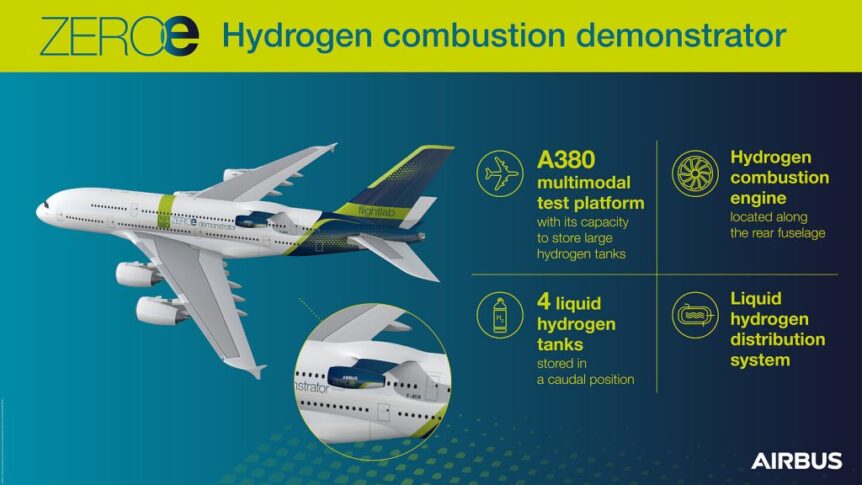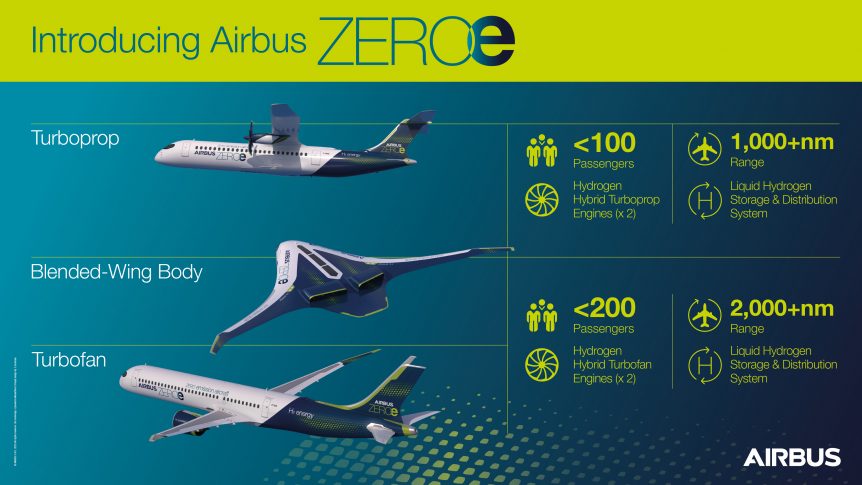Airbus and engine maker CFM International have signed a partnership agreement on a hydrogen demonstration program that could see commercial flights by 2035. CFM is a 50/50 joint company between GE and Safran Aircraft Engines. The team announced its intentions in an hour-long introduction on February 22, with members from the companies explaining the goals of the project. A view of what they intend to do with Airbus 380 serial number one gives a view inside the cavernous craft. As pointed out in a Green Car Congress article, the main objective is to develop and flight test a direct combustion engine fueled by liquid hydrogen. The Biggest Test Bed ZeroAvia seeks to get a 20-passenger liner in flight by 2024 and scale up to a 200-seat craft with 3,000 mile range by 2035. Jeff Engler’s Wright Electric is working on a BAe 146 with short-range aspirations for its 100-passenger, hydrogen fuel cell or aluminum cell-powered airplane by 2026. (We will …
ZEROe on the Rise at Airbus
ZEROe Airbus, taking a new direction, announced that they are, “Exploring game-changing concept aircraft – known as ZEROe – powered by hydrogen, a disruptive zero-emission technology with the potential to reduce aircraft emissions by up to 50%.” Two seem to be evolutionary, employing a different fuel and powertrain within fairly conventional airframes. The third, a blended-wing body (BWB) structure, emulates Boeing’s and NASA’s BWB. All three, though, employ hydrogen to meet the planet’s need to reduce or eliminate carbon dioxide and other emissions. All three use hydrogen hybrid power systems. The International Civil Aviation Organization (ICAO) in a 2019 report looked at the different electric and hybrid systems available. The organization included a factor examined before in this blog. “The climate benefits of electric aviation may come not only from its reduced CO2 emissions, but also from the elimination of contrails – the long, thin clouds that form in the wake of jet engines2. Although no scientific consensus exists on …


